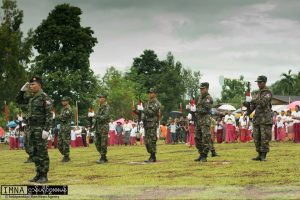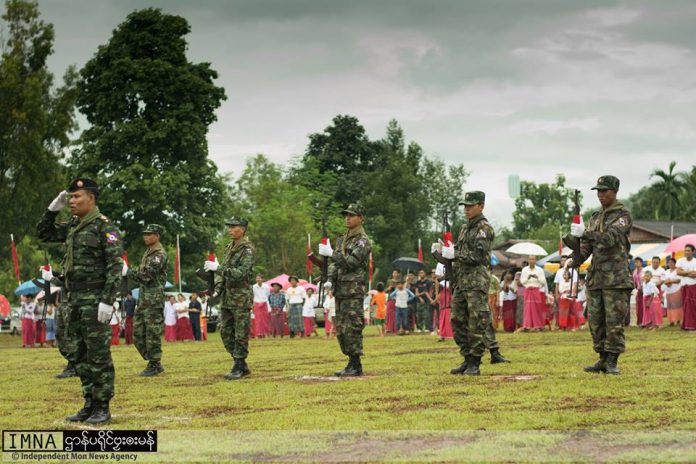For Mon people, the date July 19 delivers many lessons. It was the day when a Mon revolutionary armed group, the Mon People’s Front, surrendered to the Burmese government in the year of 1958.
It was on July 19, 1958, that the Mon People’s Front (MPF) reached an agreement with U Nu’s parliamentary government, wherein the MPF surrendered their arms peacefully.

Prior to this, the MPF had spent 10 years resisting the government forces since independence in 1948.
The important points of the agreement between the government’s Tatmadaw [army] and the MPF were;
1) The government must recognize the MPF as a legal association when it is announced that the MPF’s executive group were disarmed to the government.
2) The government agrees to provide forgiveness and amnesty
3) The government agrees to provide democratic rights in establishing Mon State
4) The government is responsible to provide suitable restorations to Mon soldiers and Mon commanders who were in the legal governmental framework
After signing the agreement, a “ceremony of transforming from armed battle to Parliamentary legal-framework battle” was held on July 24, in Moulmein, capital of Mon State. At the ceremony, 1111 MPF handed their guns over to the government.
The government proceeded to provide two Longyis, two sets of clothes and 200 Kyats to each of the disarmed MPF men.
Afterwards, the MPF became a legal organization as well as a political party. The party members competed in the 1960 elections on February 6. The elected party representatives were Nai Poe Cho for the constituency of Ye Township, Nai Aung Htun for Kyaikkami Township and Nai Poe Sein for Mudon Township. As a result, the party representatives became members of parliament.
During the U Nu government term, Nai Aung Htun, a MPF Chairman,served for the Mon Affairs Minister position, as well as co-managing the Rescue and Resettlement Minister and National Unity Department posts.
However, General Ne Win staged a coup d’etat on March 2, 1962, and soon dissolved the MPF Party. Ne Win disregarded the agreements reached between the MPF and the U Nu Government. Subsequently, many honorable Mon leaders and soldiers were arrested and languished for years in prison.
Amongst the prominent Mon leaders jailed were Nai Aung, Nai Htun Thein, Nai Ngwe Thein (current chairman of Mon National Party), Nai Nonlar, Nai Thein Maung, Nai Thar Han, Bo Kyaung, Nai Poe Sein, Nai Kon Palain and Nai Tin Aung (vice-chairman 1 of Mon National Party).
Whether it was the exchange of arms with peace, the laying down of guns diplomatically, the transformation of an armed battle to a democratic one, the establishment of a law firm or the change of war tactics, the answer was surrender and eventual despair.
To summarize, July 19, 1958, when the Mon People’s Front (MPF) laid down their guns in peace for the U Nu parliamentary government is when the Mon people were sold a lie. It was the darkest day for the Mon people.

